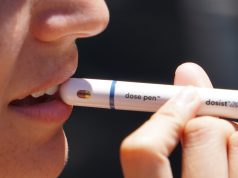After the Fidel Castro-led Cuban revolution came to its conclusion in 1959, private enterprise became outlawed in Cuba. Since then, Cubans have had no access to the American dollar or any sort of financing from any American business.
In 2023, Cuban-american and development expert, Gustavo Arnavat, was invited by the U.S. embassy to lead what the embassy calls an “entrepreneur boot camp.” Over 200 Cuban entrepreneurs met inside a hotel in Havana to learn from Arnavat about their capabilities and where they can improve as business owners.
Some current business owners on the island are opposed to the idea of these boot camps because there are American-imposed economic sanctions on Cuba that directly and negatively affect business in Cuba. Arvanat said the problems go beyond what the U.S. government does not allow them to do.
“What they need is capital, they need an idea, they need persistence, they need to really work through very difficult times,” said Arvanat. “Every entrepreneur is gonna have good days and bad days. Some bad days are going to be extremely challenging. They probably want to give up. Again, no different than any other country. But here is particularly difficult.”
Benjamin Ziff, the top diplomat at the U.S. embassy in Havana, said that the Biden administration is exploring what sanctions can be lifted in order to make business easier to achieve on the island.
“There’s a shortage of food, there’s a shortage of gas [in Cuba], a shortage of water,” said Ziff. “The Cuban state economy is no longer able to provide for its people. And the answer to that is not a necessary evil private sector, it is a more, better, more empowered private sector.”
Despite controversy and backlash from the Cuban government, the U.S. embassy plans to continue these boot camps with the hope of easing almost 60 years’ worth of tension and enlightening the future of Cubans across the entire island.
































